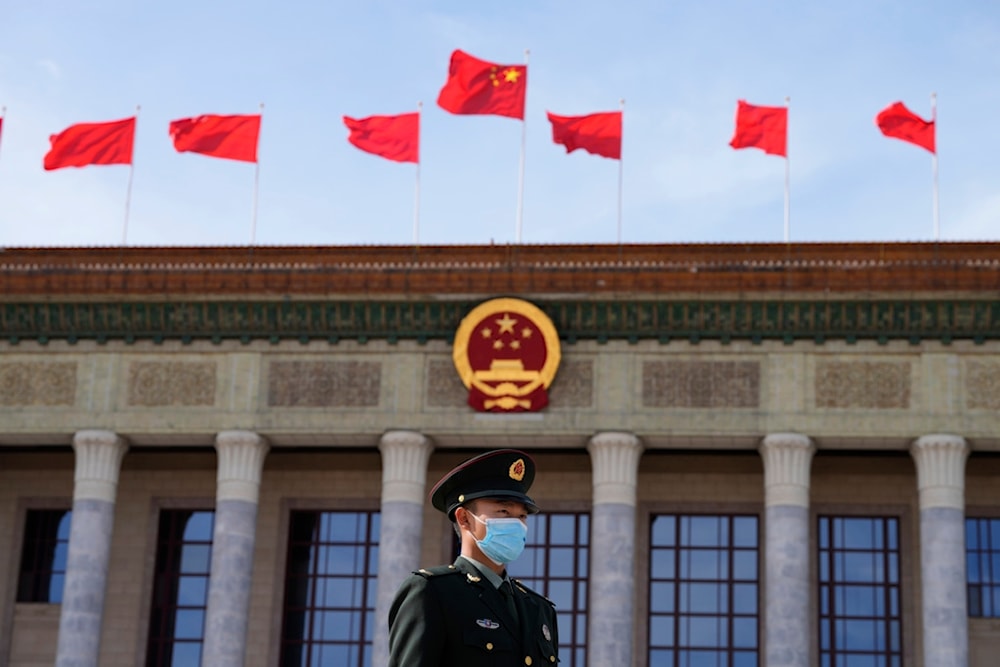Chinese lawmakers approve revised State secrets protection law
The law, initially enacted in 1988 and amended for the first time in 2010, is now undergoing its second revision.
-

A Chinese soldier stands guard outside the Great Hall of the People after the opening ceremony of The Third Belt and Road Forum at the Great Hall of the People in Beijing, Wednesday, Oct. 18, 2023 (AP)
Chinese state broadcaster CCTV on Tuesday reported for the first time since 2010, that Chinese lawmakers approved a revised state secrets protection law, a measure deemed crucial for the safeguard of national sovereignty and security.
The law was first implemented in 1988 and underwent its initial amendment in 2010. This revision therefore marks the law's second update.
As per the broadcaster's report, the updated law is not expected to bring about any major change to the current legal framework concerning state secrets.
It specifically stated that the definition and classifications of state secrets will remain unchanged, noting that the revisions will solely serve to clarify existing regulations.
Read more: Russia, China to work towards 'more just multipolar world order'
On this note, the revised law includes an article that has garnered considerable attention from observers.
This article suggests that organizations should implement necessary protective measures concerning information that, while not classified as state secrets, could result in serious repercussions if leaked.
The revised law, endorsed during the session of the 14th Standing Committee of the National People's Congress, is set to come into effect on May 1, 2024.
West threatened by China's rise
This comes against the backdrop of heightened tensions between the West and China.
China's rise has in recent years stirred unease for the West, particularly due to its significant growth in trade and development projects, along with investments in both domestic industries and military capabilities.
For the EU, China has been a significant source of anxiety due to its economic performance surpassing that of some of Europe's major companies. This concern has prompted the bloc to implement a risk-reduction strategy with China.
For the US, on the other hand, China has been a cause of concern due to its expanding military capabilities, which have challenged US military supremacy regionally and globally.
Attempts at harming China's sovereignty
Recent tensions have particularly revolved around Western attempts to harm Chinese national sovereignty.
For years, China has been working to reunify with Taiwan, a territory that is fundamentally part of China but is currently governed by separatist forces.
Read more: EU's Von Der Leyen says bloc 'totally dependent' on China's lithium
The US has made it clear that it fully abides by the One China principle. However, multiple visits by US officials to Taipei in recent months have led to increased tensions between Beijing and Washington.
Observers warned that persistent "lack of communication" with China could potentially lead to war.

 3 Min Read
3 Min Read








